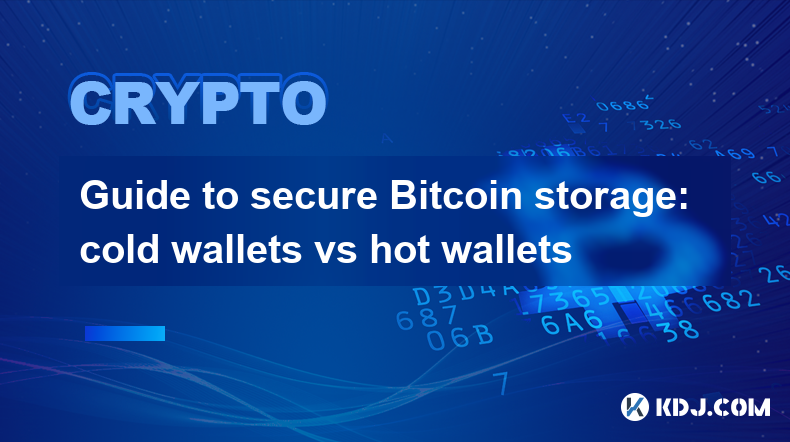-
 Bitcoin
Bitcoin $84,713.1827
1.52% -
 Ethereum
Ethereum $1,623.6873
1.81% -
 Tether USDt
Tether USDt $0.9998
0.02% -
 XRP
XRP $2.1830
5.67% -
 BNB
BNB $593.1006
0.48% -
 Solana
Solana $130.1833
4.67% -
 USDC
USDC $0.9998
-0.01% -
 Dogecoin
Dogecoin $0.1660
2.01% -
 TRON
TRON $0.2472
-0.78% -
 Cardano
Cardano $0.6508
2.97% -
 UNUS SED LEO
UNUS SED LEO $9.4154
0.60% -
 Chainlink
Chainlink $13.0188
2.27% -
 Avalanche
Avalanche $20.0994
5.28% -
 Sui
Sui $2.3440
5.86% -
 Stellar
Stellar $0.2451
2.61% -
 Hedera
Hedera $0.1724
1.48% -
 Shiba Inu
Shiba Inu $0.0...01235
0.52% -
 Toncoin
Toncoin $2.8997
-0.20% -
 Bitcoin Cash
Bitcoin Cash $342.7932
9.65% -
 MANTRA
MANTRA $6.3078
-1.10% -
 Litecoin
Litecoin $78.9540
3.66% -
 Polkadot
Polkadot $3.6837
2.68% -
 Hyperliquid
Hyperliquid $16.1621
2.98% -
 Dai
Dai $1.0002
0.02% -
 Bitget Token
Bitget Token $4.3704
-0.32% -
 Pi
Pi $0.7485
9.91% -
 Ethena USDe
Ethena USDe $0.9991
0.02% -
 Monero
Monero $206.9354
-0.35% -
 Uniswap
Uniswap $5.4320
2.37% -
 OKB
OKB $54.1533
2.34%
What to do if Bitcoin is stolen? Security protection and recovery possibilities
If your Bitcoin is stolen, act quickly: secure remaining assets, change passwords, notify exchanges, and file a police report to aid recovery efforts.
Apr 09, 2025 at 03:42 pm

If your Bitcoin is stolen, it can be a distressing experience, but there are steps you can take to protect your remaining assets and attempt to recover your lost funds. This article will guide you through the process of securing your Bitcoin and exploring recovery possibilities.
Immediate Actions After Bitcoin Theft
The moment you realize your Bitcoin has been stolen, it is crucial to act quickly. The first step is to secure your remaining assets. If the theft occurred through a compromised wallet, immediately disconnect the wallet from the internet to prevent further unauthorized access. Next, change all passwords and access codes associated with your cryptocurrency accounts. This includes any exchanges, wallets, and email accounts linked to your crypto activities.
Notify the relevant parties as soon as possible. If you used an exchange, contact their support team immediately to report the theft. Many exchanges have dedicated fraud departments that can assist in freezing accounts and potentially recovering funds. Additionally, file a police report. While law enforcement may not always be able to recover your Bitcoin, having an official report can be helpful if you need to pursue legal action or insurance claims.
Enhancing Security Measures
To prevent future thefts, it is essential to enhance your security measures. Start by using strong, unique passwords for each of your accounts. Consider using a password manager to generate and store these passwords securely. Enable two-factor authentication (2FA) wherever possible. This adds an extra layer of security by requiring a second form of verification, such as a text message or an authentication app, to access your accounts.
Use hardware wallets for storing your Bitcoin. Hardware wallets are physical devices that store your private keys offline, making them much more secure than software wallets. Popular hardware wallet options include Ledger and Trezor. When using a hardware wallet, always verify the authenticity of the device to avoid falling victim to counterfeit products.
Regularly update your software and firmware. Keeping your wallets, exchanges, and other software up to date ensures you have the latest security patches and protections against known vulnerabilities. Additionally, be cautious of phishing attempts. Always double-check the URLs of websites you visit and never enter your private keys or seed phrases on any site that you are not absolutely sure is legitimate.
Exploring Recovery Possibilities
Recovering stolen Bitcoin can be challenging, but there are several avenues you can explore. Contact the exchange or wallet provider where the theft occurred. Some platforms have insurance policies that may cover losses due to theft. If the theft was due to a security breach on their end, they may be able to assist in recovering your funds.
Engage with blockchain analysis firms. Companies like Chainalysis and Elliptic specialize in tracking cryptocurrency transactions and can sometimes help trace stolen funds. While their services can be costly, they may be able to provide valuable insights into where your Bitcoin has gone and potentially aid in recovery efforts.
Consider legal action. If you have a strong case and can identify the perpetrator, pursuing legal action may be an option. This can be a lengthy and expensive process, but it may be necessary if other recovery methods fail. Consult with a lawyer who specializes in cryptocurrency to understand your options and the feasibility of legal action.
Preventing Future Theft
To minimize the risk of future theft, implement robust security practices. Diversify your storage solutions. Instead of keeping all your Bitcoin in one place, consider using a combination of hardware wallets, paper wallets, and cold storage solutions. This diversification can limit the impact of a single point of failure.
Educate yourself about common scams and security threats. The cryptocurrency space is rife with phishing attempts, fake exchanges, and other scams. Staying informed about these threats can help you avoid falling victim to them. Regularly back up your wallet data and store these backups in secure, offline locations. This ensures that you can recover your funds even if your primary wallet is compromised.
Monitor your transactions and account activity. Use blockchain explorers to keep an eye on your Bitcoin transactions and ensure that no unauthorized activity is occurring. Set up alerts for any unusual activity on your accounts to catch potential issues early.
Seeking Professional Assistance
If you find the process of securing and recovering your Bitcoin overwhelming, consider seeking professional assistance. Cryptocurrency recovery services can provide expert guidance and support. These services often have the tools and expertise to trace stolen funds and assist in recovery efforts. However, be cautious when selecting a recovery service, as there are many fraudulent companies in this space.
Consult with a cybersecurity expert. A professional can help you assess your current security setup and recommend improvements. They can also assist in setting up more secure systems and monitoring for potential threats. Join cryptocurrency communities and forums. Engaging with other crypto enthusiasts can provide valuable insights and support. Many communities have members who have experienced similar issues and can offer advice and recommendations.
Frequently Asked Questions
Q: Can I recover Bitcoin if the thief has already moved it to another wallet?
A: Recovering Bitcoin that has been moved to another wallet is challenging but not impossible. Blockchain analysis firms can sometimes trace the movement of funds, and if the thief has not taken steps to obscure the transaction path, it may be possible to identify where the Bitcoin has gone. However, the success of recovery efforts depends on various factors, including the sophistication of the thief and the speed with which you act.
Q: Is it safe to use online wallets after a theft?
A: Online wallets can be safe if you take appropriate security measures. After a theft, it is crucial to enhance your security practices, such as using strong passwords, enabling 2FA, and regularly monitoring your account activity. However, for long-term storage, hardware wallets are generally considered more secure than online wallets.
Q: How can I verify the authenticity of a hardware wallet?
A: To verify the authenticity of a hardware wallet, purchase it directly from the manufacturer or an authorized reseller. Check the packaging for any signs of tampering, and ensure that the device's serial number matches the one on the manufacturer's website. Some manufacturers also provide a way to verify the device's firmware integrity, so follow their instructions carefully.
Q: What should I do if I suspect my Bitcoin wallet has been compromised but no funds have been stolen yet?
A: If you suspect your Bitcoin wallet has been compromised but no funds have been stolen, take immediate action to secure your assets. Disconnect the wallet from the internet, change all related passwords, and enable 2FA if not already in place. Monitor your account closely for any unauthorized activity and consider transferring your funds to a new, secure wallet.
Disclaimer:info@kdj.com
The information provided is not trading advice. kdj.com does not assume any responsibility for any investments made based on the information provided in this article. Cryptocurrencies are highly volatile and it is highly recommended that you invest with caution after thorough research!
If you believe that the content used on this website infringes your copyright, please contact us immediately (info@kdj.com) and we will delete it promptly.
- Bitcoin Price Today, April 13, 2025
- 2025-04-13 16:45:12
- Bitcoin (BTC) Shows Notable Resilience as It Clings to Support Above the Critical $74,000 Mark
- 2025-04-13 16:45:12
- Pi Network Launches New Ad Program with the Expansion of Its Ad Network
- 2025-04-13 16:40:15
- The Next Shiba Inu? XYZVerse Promises to Merge Sports Fandom with Crypto Community
- 2025-04-13 16:40:15
- Long-Term Holder Activity and Chart Patterns Suggest a Major Bitcoin Move Is Coming
- 2025-04-13 16:40:12
- Born from a meme, Dogecoin has established itself as a paradox of cryptocurrencies: both a joke and a serious asset.
- 2025-04-13 16:40:12
Related knowledge

What is Bitcoin halving? Analysis of the impact on prices
Apr 09,2025 at 01:14pm
Bitcoin halving is a pivotal event in the cryptocurrency world that occurs approximately every four years, or every 210,000 blocks. The event is designed to reduce the rate at which new bitcoins are generated, thereby controlling inflation and increasing scarcity over time. During a halving, the reward that miners receive for successfully adding a block...

What to do if Bitcoin is stolen? Security protection and recovery possibilities
Apr 09,2025 at 03:42pm
If your Bitcoin is stolen, it can be a distressing experience, but there are steps you can take to protect your remaining assets and attempt to recover your lost funds. This article will guide you through the process of securing your Bitcoin and exploring recovery possibilities. Immediate Actions After Bitcoin TheftThe moment you realize your Bitcoin ha...

How to avoid Bitcoin investment scams? Common scams revealed
Apr 10,2025 at 05:14pm
Introduction to Bitcoin Investment ScamsBitcoin and other cryptocurrencies have become increasingly popular investment options, attracting both seasoned investors and newcomers alike. However, with the rise in popularity, there has also been a surge in Bitcoin investment scams. These scams can range from Ponzi schemes to fake exchanges and fraudulent in...

Guide to secure Bitcoin storage: cold wallets vs hot wallets
Apr 11,2025 at 08:42am
Guide to Secure Bitcoin Storage: Cold Wallets vs Hot Wallets When it comes to storing Bitcoin, security is paramount. The choice between cold wallets and hot wallets can significantly impact the safety of your digital assets. This guide delves into the differences between these two types of wallets, their respective advantages and disadvantages, and how...

What is Bitcoin fork? Differences between BTC, BCH, and BSV
Apr 10,2025 at 02:21am
A Bitcoin fork refers to a change in the underlying protocol of the Bitcoin blockchain, which results in a divergence into two separate versions of the blockchain. This can happen as a result of a disagreement within the community about the direction of the cryptocurrency, or to introduce new features or improvements. There are two main types of forks: ...

The role of Bitcoin wallets: public keys, private keys and security analysis
Apr 09,2025 at 03:00am
Bitcoin wallets play a crucial role in the world of cryptocurrency, serving as the gateway to securely store, send, and receive Bitcoin. Understanding the intricacies of Bitcoin wallets, particularly the concepts of public keys, private keys, and security analysis, is essential for anyone looking to navigate the cryptocurrency landscape safely and effec...

What is Bitcoin halving? Analysis of the impact on prices
Apr 09,2025 at 01:14pm
Bitcoin halving is a pivotal event in the cryptocurrency world that occurs approximately every four years, or every 210,000 blocks. The event is designed to reduce the rate at which new bitcoins are generated, thereby controlling inflation and increasing scarcity over time. During a halving, the reward that miners receive for successfully adding a block...

What to do if Bitcoin is stolen? Security protection and recovery possibilities
Apr 09,2025 at 03:42pm
If your Bitcoin is stolen, it can be a distressing experience, but there are steps you can take to protect your remaining assets and attempt to recover your lost funds. This article will guide you through the process of securing your Bitcoin and exploring recovery possibilities. Immediate Actions After Bitcoin TheftThe moment you realize your Bitcoin ha...

How to avoid Bitcoin investment scams? Common scams revealed
Apr 10,2025 at 05:14pm
Introduction to Bitcoin Investment ScamsBitcoin and other cryptocurrencies have become increasingly popular investment options, attracting both seasoned investors and newcomers alike. However, with the rise in popularity, there has also been a surge in Bitcoin investment scams. These scams can range from Ponzi schemes to fake exchanges and fraudulent in...

Guide to secure Bitcoin storage: cold wallets vs hot wallets
Apr 11,2025 at 08:42am
Guide to Secure Bitcoin Storage: Cold Wallets vs Hot Wallets When it comes to storing Bitcoin, security is paramount. The choice between cold wallets and hot wallets can significantly impact the safety of your digital assets. This guide delves into the differences between these two types of wallets, their respective advantages and disadvantages, and how...

What is Bitcoin fork? Differences between BTC, BCH, and BSV
Apr 10,2025 at 02:21am
A Bitcoin fork refers to a change in the underlying protocol of the Bitcoin blockchain, which results in a divergence into two separate versions of the blockchain. This can happen as a result of a disagreement within the community about the direction of the cryptocurrency, or to introduce new features or improvements. There are two main types of forks: ...

The role of Bitcoin wallets: public keys, private keys and security analysis
Apr 09,2025 at 03:00am
Bitcoin wallets play a crucial role in the world of cryptocurrency, serving as the gateway to securely store, send, and receive Bitcoin. Understanding the intricacies of Bitcoin wallets, particularly the concepts of public keys, private keys, and security analysis, is essential for anyone looking to navigate the cryptocurrency landscape safely and effec...
See all articles






















































































